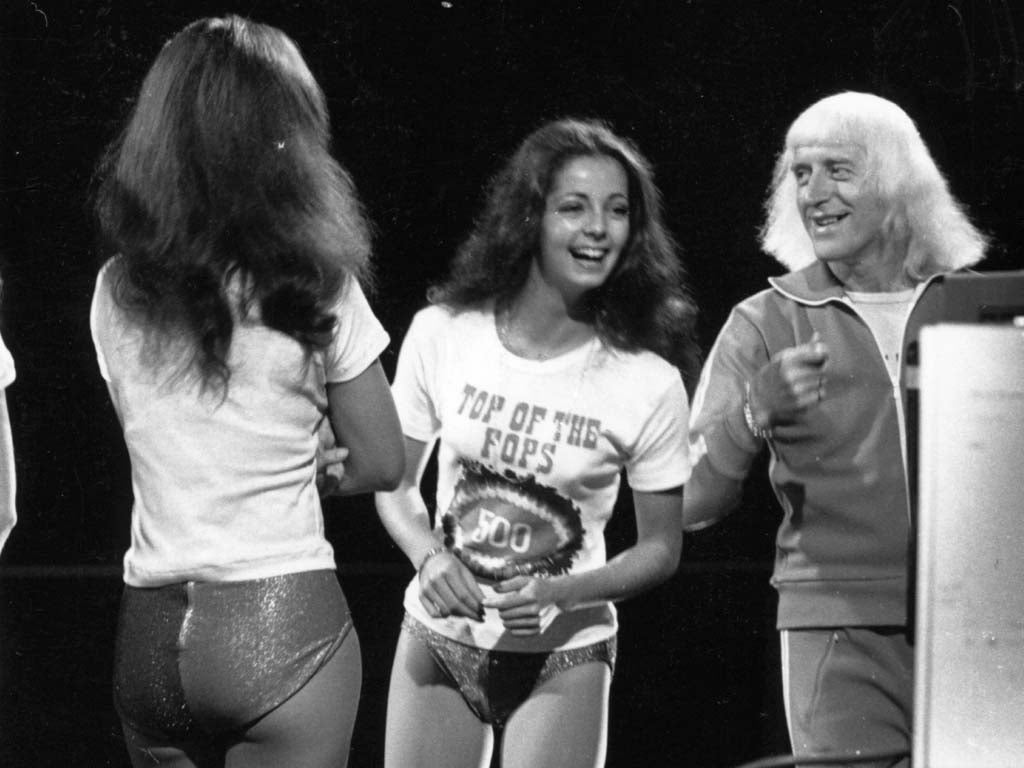BBC’s ban on archive ‘Top of the Pops’ closes a window on our heritage
The BBC banning repeats of Top of the Pops where Savile is featured is a step too far.

Your support helps us to tell the story
From reproductive rights to climate change to Big Tech, The Independent is on the ground when the story is developing. Whether it's investigating the financials of Elon Musk's pro-Trump PAC or producing our latest documentary, 'The A Word', which shines a light on the American women fighting for reproductive rights, we know how important it is to parse out the facts from the messaging.
At such a critical moment in US history, we need reporters on the ground. Your donation allows us to keep sending journalists to speak to both sides of the story.
The Independent is trusted by Americans across the entire political spectrum. And unlike many other quality news outlets, we choose not to lock Americans out of our reporting and analysis with paywalls. We believe quality journalism should be available to everyone, paid for by those who can afford it.
Your support makes all the difference.Every so often hindsight changes history.
It’s a bit like standing on a cliff watching a sunset, and then someone coming and plonking down a great lump of concrete so all you can see is the glow emanating from behind it.
Such is the case with the BBC’s decision to axe repeats of archive Top of the Pops, featuring recently disgraced national treasure Jimmy Savile.
Savile’s was the sort of fame that might have lingered for a while, fuelled by the cash cow of nostalgia and retro-hipsterishness, and then waned when living memory gave out. But he happened to preside over popular culture during a time that is key to the modern era. He was among the earliest figureheads for a youth movement still finding its feet, one that rebelled against and romanticised all that was exhilarating about a decade that was one of the first to recognise the importance of music and young people’s interests. It’s the artists that he played and promoted who will endure, but the BBC’s blanket ban is, dare I say it, a bit of a shame.
Top of the Pops is part of the fabric of our slightly moth-eaten national quilt: if you’re under 50, it formed you, and if you’re over 50, it probably filled you with dread. Either way, catching the funny haircuts, chest wigs and Tesla mics on late-night TV is always something of a joy.
And that’s before you consider the content: Marc Bolan, David Bowie, the Brotherhood of Man. Even Gary Glitter – who, despite his woeful peccadilloes, recorded a number of songs that have entered the canon. Are we doomed for ever to listen to the KLF’s Doctor Who version of Glitter’s “Rock and Roll”?
This is the problem with culture: history is sometimes barbaric. The mores of the masses change slowly, and with time. That’s not in any way to downplay Savile’s crimes, but can you castigate culture without context? André Gide was guilty of much the same, but his work stands up to modern scrutiny. Byron was a proper sod, but we still read his poetry.
I don’t suggest that Top of the Pops is in the same league, but banning repeats and essentially closing a window on that world strikes me as pandering to a populace that may yet want to watch it again.
Twitter: @harrywalker1
Join our commenting forum
Join thought-provoking conversations, follow other Independent readers and see their replies
Comments